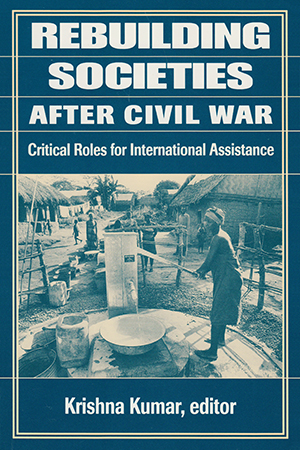
- 1997/329 pages
Rebuilding Societies After Civil War:
Critical Roles for International Assistance
Paperback: $24.95
ISBN: 978-1-55587-652-4
With civil wars and internal violence on the rise over the past two decades, bilateral donor agencies, intergovernmental organizations, and NGOs have been playing an increasingly critical role in rehabilitation efforts once an acute conflict is over. In this process, it has become clear that the traditional aid focus on the economic sector, though essential, is not sufficient; the political and social institutions of war-torn societies must also be reconstructed.
This collection addresses three questions fundamental to international aid to war-torn societies: What are the sectors that require assistance to promote political stability and economic growth? What lessons can be learned from past experience? And how, together with the leadership of the affected societies, can more effective policies and programs be designed and implemented?
Drawing on case studies, the authors focus particularly on issues of food security, health services, human rights, military demobilization, resettlement, and reconciliation at the local level.







